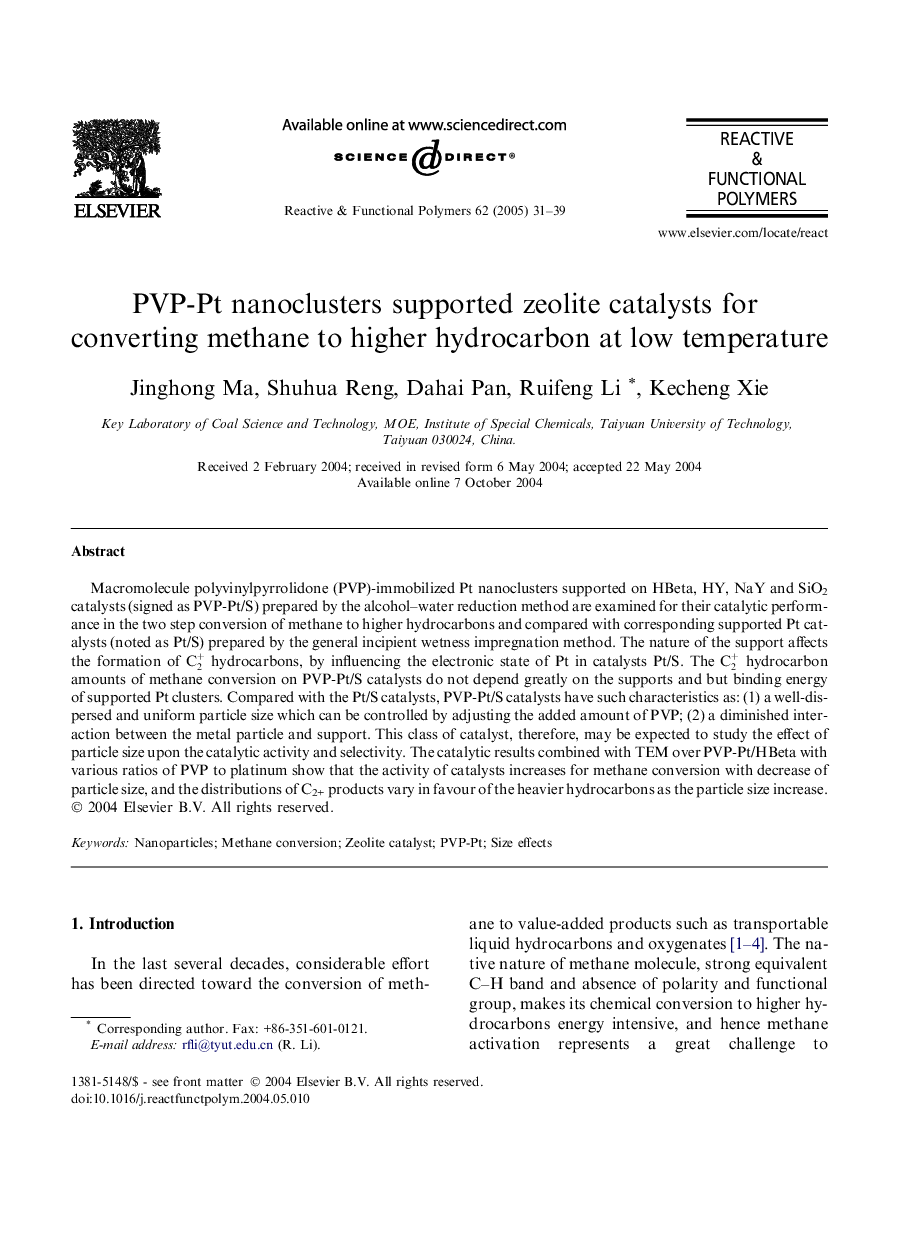| Article ID | Journal | Published Year | Pages | File Type |
|---|---|---|---|---|
| 9562601 | Reactive and Functional Polymers | 2005 | 9 Pages |
Abstract
Macromolecule polyvinylpyrrolidone (PVP)-immobilized Pt nanoclusters supported on HBeta, HY, NaY and SiO2 catalysts (signed as PVP-Pt/S) prepared by the alcohol-water reduction method are examined for their catalytic performance in the two step conversion of methane to higher hydrocarbons and compared with corresponding supported Pt catalysts (noted as Pt/S) prepared by the general incipient wetness impregnation method. The nature of the support affects the formation of C2+ hydrocarbons, by influencing the electronic state of Pt in catalysts Pt/S. The C2+ hydrocarbon amounts of methane conversion on PVP-Pt/S catalysts do not depend greatly on the supports and but binding energy of supported Pt clusters. Compared with the Pt/S catalysts, PVP-Pt/S catalysts have such characteristics as: (1) a well-dispersed and uniform particle size which can be controlled by adjusting the added amount of PVP; (2) a diminished interaction between the metal particle and support. This class of catalyst, therefore, may be expected to study the effect of particle size upon the catalytic activity and selectivity. The catalytic results combined with TEM over PVP-Pt/HBeta with various ratios of PVP to platinum show that the activity of catalysts increases for methane conversion with decrease of particle size, and the distributions of C2+ products vary in favour of the heavier hydrocarbons as the particle size increase.
Related Topics
Physical Sciences and Engineering
Chemistry
Organic Chemistry
Authors
Jinghong Ma, Shuhua Reng, Dahai Pan, Ruifeng Li, Kecheng Xie,
